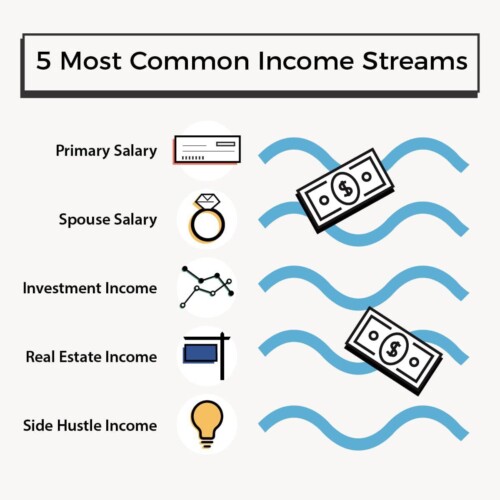When it comes to managing finances, understanding the nuances of tax withholding can make a significant difference in your financial health. Often, people opt to over-withhold taxes from their paychecks, anticipating a substantial refund at year-end. While receiving a sizable tax refund might seem like a win, this common practice might not be the most financially savvy move.
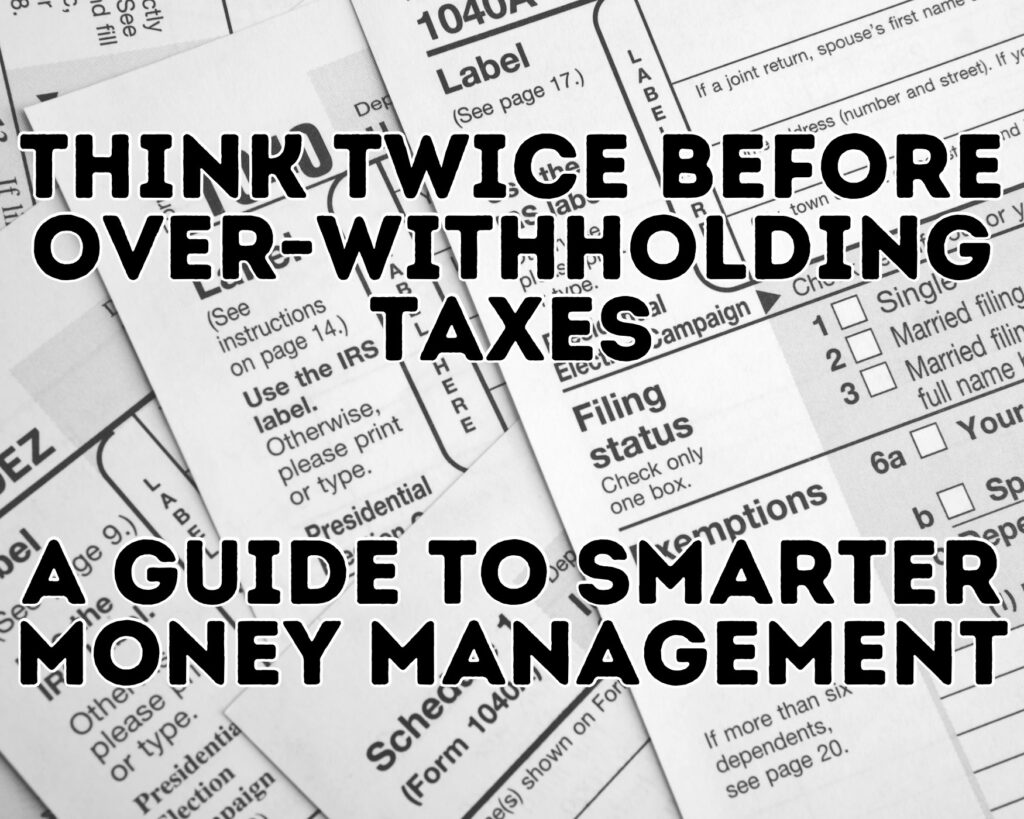
Over-withholding means you’re essentially giving the government an interest-free loan with your hard-earned money. But what if you could use that money more effectively throughout the year? From investing in yourself to making smart investment choices, even with limited funds, there are ways to put your money to work for you, rather than letting it sit idly in the government’s coffers.
In this article, we will explore the concept of tax withholding, the downsides of over-withholding, and how better managing these funds can lead to improved financial well-being. We’ll also provide practical advice on how to adjust your withholding to optimize your finances, helping you to make more informed decisions that align with your personal financial goals. Whether you’re a seasoned investor or just starting out with platforms like Robinhood, understanding your tax withholding can be a crucial step in your financial journey.
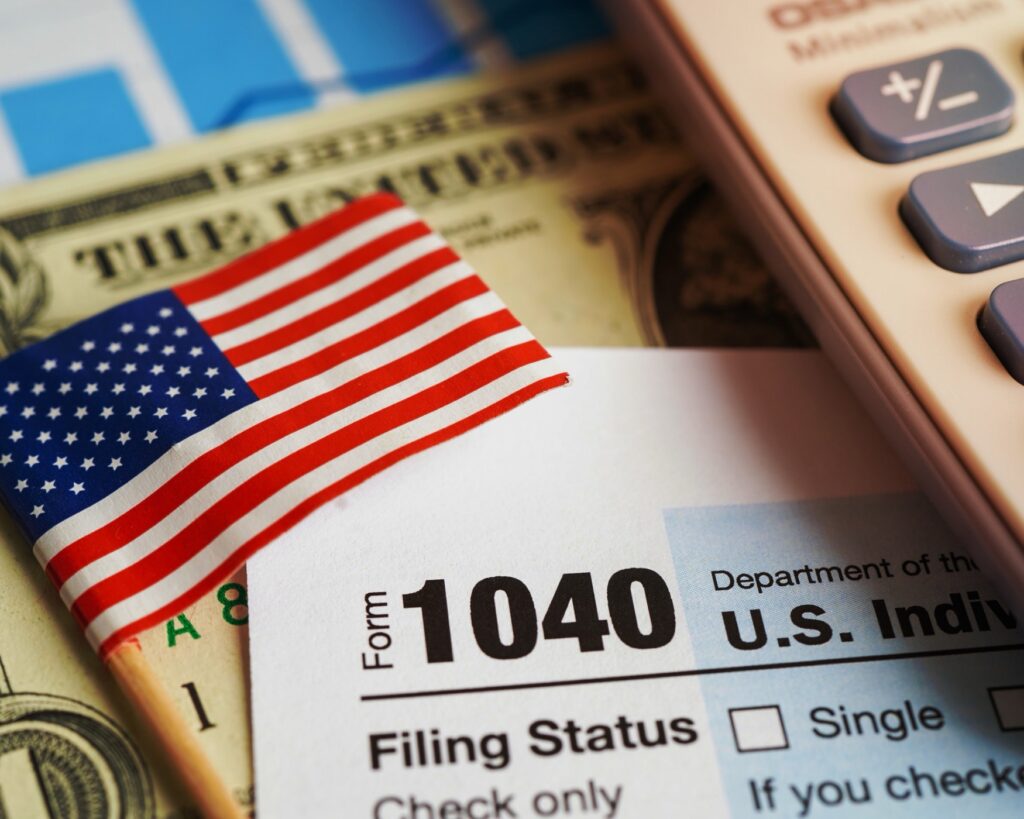
Understanding Tax Withholding
What is Tax Withholding? Tax withholding is the process by which employers deduct a portion of your paycheck and send it directly to the government as a way of paying part of your annual income tax in advance. This system is designed to help taxpayers avoid a large tax bill at the end of the year. However, it requires careful calibration to ensure that the right amount is being withheld.
Why Do People Over-Withhold? Many individuals opt to over-withhold their taxes for a few reasons:
- A Forced Savings Plan: Some view tax refunds as a forced savings mechanism. By over-withholding, they ensure a lump sum return, which they might not have been disciplined enough to save otherwise.
- Fear of Owing Taxes: Others fear the possibility of owing a large sum at tax time. Over-withholding is seen as a safety net against this scenario.
- Lack of Understanding: Often, people over-withhold simply because they don’t fully understand how to adjust their tax withholdings accurately.
However, this approach might not be as beneficial as it seems. The money that’s over-withheld sits with the government, not earning any interest or growing, which could otherwise be possible through smart investing strategies. For instance, by learning to invest wisely, even with small amounts, you could potentially see greater financial growth over the year.
The next section will delve into why over-withholding can be a less optimal financial strategy and explore the opportunity costs associated with it.
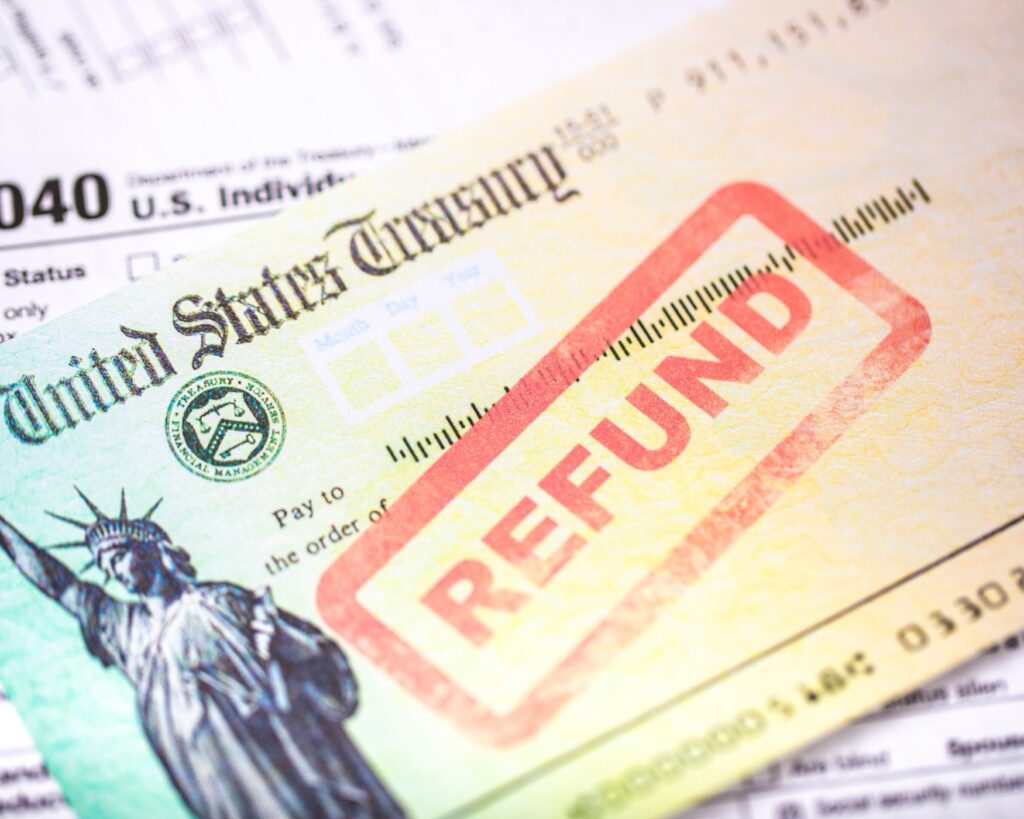
The Downside of Over-Withholding
The Concept of Opportunity Cost When you over-withhold taxes, you’re missing out on potential financial gains that could be earned if that money were in your hands throughout the year. This lost potential is known as ‘opportunity cost.’ Instead of your money sitting in the government’s account, it could be:
- Invested for Growth: Even small investments can grow over time. By investing the extra money that you’re currently over-withholding, you could potentially earn returns through interest or stock market growth. For those new to investing, resources like a step-by-step guide to using the Robinhood investing app can be incredibly helpful.
- Used for Debt Reduction: If you have high-interest debts, using this additional money to pay them down could save you money on interest and help you become debt-free faster.
- Allocated Towards Personal Development: Investing in yourself, whether through education, skill development, or health, can have long-term benefits. The journey of investing in oneself often pays the best dividends.
The Illusion of a Larger Refund A common misconception is that a large tax refund means you’ve ‘saved’ more money. In reality, you’re just getting back the excess amount that was not required for your actual tax liability. This money could have been utilized more efficiently throughout the year.
Liquidity and Cash Flow Having access to your own money throughout the year can improve your cash flow, allowing for greater flexibility in handling unexpected expenses or taking advantage of financial opportunities as they arise.
In the next section, we’ll discuss alternative ways to use the funds that would otherwise be withheld for taxes, highlighting how making smarter decisions with your money can enhance your financial well-being.

Better Money Management: Using Your Funds Wisely
Investing Your Extra Funds Instead of letting your money sit idly with the IRS, consider investing it. Whether it’s in stocks, bonds, mutual funds, or even a retirement account, investing can offer the potential for growth. For beginners, learning to navigate investment platforms can be made easier with guides like Unlock Your Investment Potential: A Step-by-Step Guide to Using the Robinhood Investing App.
Paying Down Debts Using the extra funds for debt reduction, especially high-interest debt like credit cards, can be financially liberating. Reducing debt not only relieves the burden of interest payments but also improves your credit score and overall financial health.
Building an Emergency Fund Financial experts often recommend having an emergency fund to cover unexpected expenses. Redirecting over-withheld taxes to build this fund can provide you with a safety net, reducing the need to rely on credit in emergencies.
Saving for a Goal Whether it’s for a down payment on a house, a dream vacation, or furthering your education, having extra funds can help you reach these goals faster. The satisfaction of reaching these milestones often outweighs the temporary excitement of a tax refund.
Investing in Personal Development As highlighted in My Journey from Wasting Time to Investing in Myself, investing in personal growth can have immense long-term benefits. This could include taking courses, attending workshops, or any activity that contributes to your personal or professional development.
How to Adjust Your Withholding Review your current withholding status by checking your pay stubs and using the IRS Withholding Estimator. If you’re consistently getting large refunds, it might be time to adjust your W-4 form through your employer. This change will increase your take-home pay, giving you more control over your money throughout the year.

Case Studies: Success Stories of Proper Withholding
Maximizing Investment Opportunities:
- Case Study 1: Sarah, an IT professional, used to receive a large tax refund every year. After reassessing her tax withholding, she redirected the additional funds into a monthly investment in an index fund. Over the year, not only did her investments grow due to market appreciation, but she also benefited from dollar-cost averaging, making her financial portfolio more robust.
Debt-Free Living:
- Case Study 2: James, a school teacher, was struggling with credit card debt. By adjusting his tax withholding, he channeled the extra money towards paying off his debt. This strategy significantly reduced his interest burden and helped him become debt-free within a year, improving his credit score and overall financial peace of mind.
Emergency Fund Building:
- Case Study 3: Emily, a freelance graphic designer, used her additional paycheck money to build an emergency fund. When an unexpected medical expense arose, she was able to cover it without resorting to high-interest loans or credit cards, demonstrating the practicality of having an emergency fund for financial security.
Achieving Personal Goals:
- Case Study 4: Mark and Linda, a couple with a dream of traveling the world, adjusted their tax withholdings and saved the extra money for their travel fund. Within two years, they were able to embark on a six-month globetrotting adventure, a dream they thought would take much longer to achieve.
Each of these stories showcases the positive impact of proper tax withholding and effective use of funds. They illustrate that, whether it’s investing in the stock market, paying off debt, building an emergency fund, or saving for a personal goal, better control of your finances can lead to significant and fulfilling life changes.
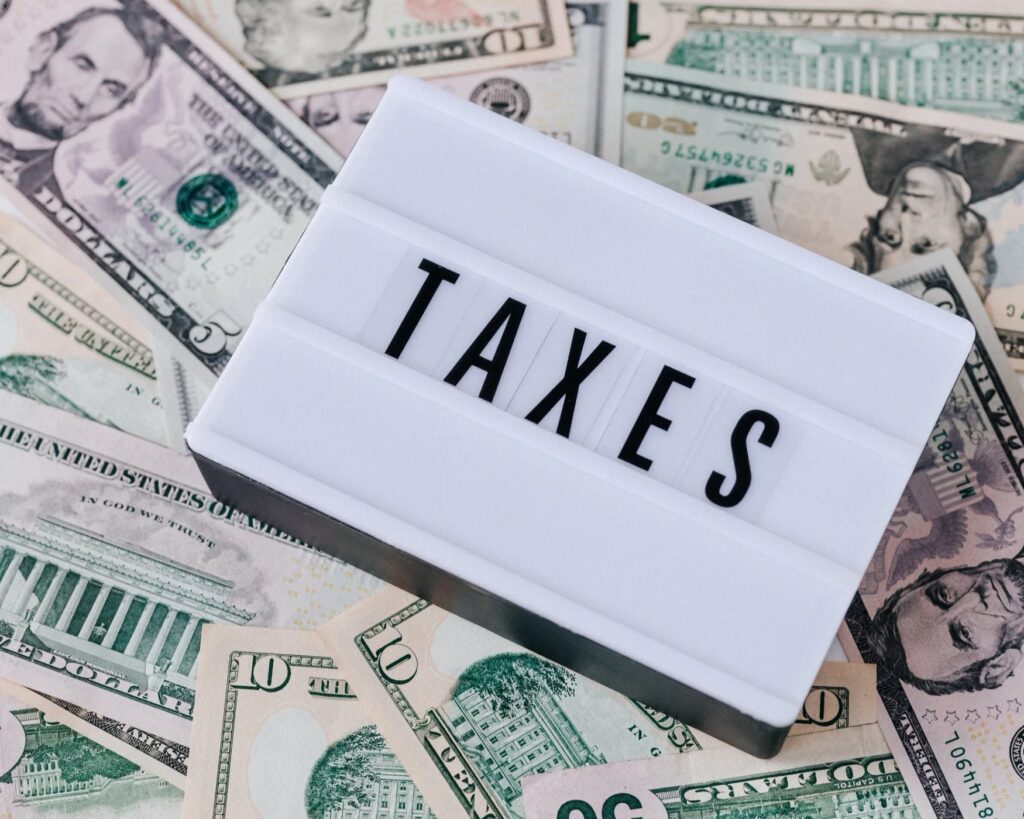
Rethinking Tax Withholding for Financial Empowerment
In the journey of financial management, understanding and optimizing tax withholding is a critical step. While the allure of a large tax refund can be tempting, it’s important to recognize the opportunity costs associated with over-withholding. By adjusting your withholdings, you can have more control over your money throughout the year, using it in ways that align with your financial goals and needs.
Whether it’s investing for growth, paying down debt, building an emergency fund, or saving for future aspirations, the power of effective money management cannot be overstated. As demonstrated by the success stories shared, properly adjusting your tax withholding can lead to significant financial improvements and achievements.
Remember, every dollar in your paycheck is a tool at your disposal. By fine-tuning your tax withholding, you can make these tools work harder for you, turning what was once a passive tax refund into active, impactful financial growth.
We encourage you to take a closer look at your current tax withholding and consider whether it aligns with your financial objectives. Perhaps it’s time to make a change, one that could set you on a path to greater financial freedom and success.
Can Adjusting My Tax Withholding Really Make a Significant Difference in My Finances?
Adjusting tax withholding can indeed make a noticeable difference in your finances. Although the additional amount in each paycheck might seem minimal, cumulatively over a year, it can be substantial. This extra money can be strategically used for various financial purposes like reducing debts, building an emergency fund, or investing, thereby enhancing your overall financial health.
Is it Risky to Reduce My Tax Withholding? What if I End up Owing Taxes?
Reducing tax withholding does carry a risk of owing taxes at the end of the year if not calculated correctly. It’s crucial to use tools like the IRS Withholding Estimator to gauge the correct amount to withhold. The goal is to withhold just enough to avoid owing a significant amount at tax time, while also not over-withholding.
Are Many People Unaware of the Benefits of Adjusting Their Withholding?
Many people are unaware of the benefits of adjusting their withholding. Commonly, individuals set their withholding when they start a job and don’t revisit it unless major life changes occur. Regularly reviewing and adjusting tax withholding can be an effective part of a broader financial strategy, especially when combined with smart budgeting and investing.
